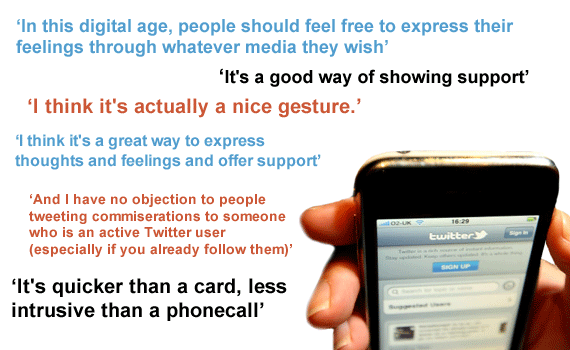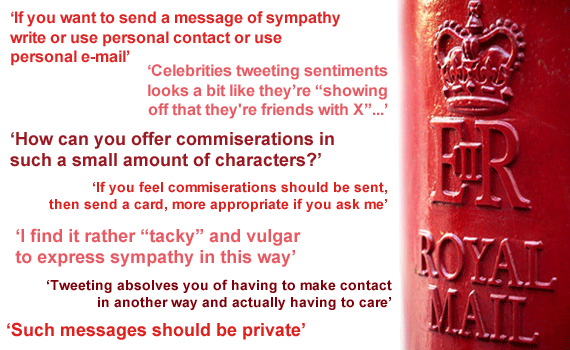A judge’s recent ruling that all posts on Twitter, the micro-blogging site, should be treated as public, and the news that regular Twitter user Amanda Holden received many tweets from celebrities and followers after she miscarried at seven months, has inspired strong feeling among our panellists over how the site should be used, with many agreeing with the court decision. Sending personal tweets, like those which express sympathy over a bereavement, via Twitter was received well by some people while others criticised the use of the site for such personal messages.
Many of our panellists felt that anything posted on Twitter should be considered public.
A few people thought that Twitter was an acceptable, modern way of expressing condolences.

While others saw it as an inappropriate way to communicate personal messages, like those dealing with bereavement, and thought other means should be found.

The perils of re-tweeting
This comes following the news that the Press Complaints Commission has ruled that newspapers were not breaching privacy rights by using quotations from Twitter, since they were already in the public domain. A civil servant, Sarah Baskerville, had made comments about her professional life on the site, which were then printed by newspapers The Daily Mail and The Independent on Sunday. Baskerville, who had a disclaimer on her Twitter page stating her tweets did not represent the views of her employers, objected to this on the basis that only friends could see her ‘tweets’. Crucially, though, such settings don’t stop friends from re-tweeting to anyone they like, thereby making comments technically public.
The story follows in the wake of a multitude of privacy problems surrounding social networking sites, with Facebook coming under fire for not making its privacy settings clear enough to its users. Employees have even lost their jobs over comments they thought would be understood as private, including thirteen Virgin Atlantic crew last year, who were sacked for describing passengers as ‘chavs’.






